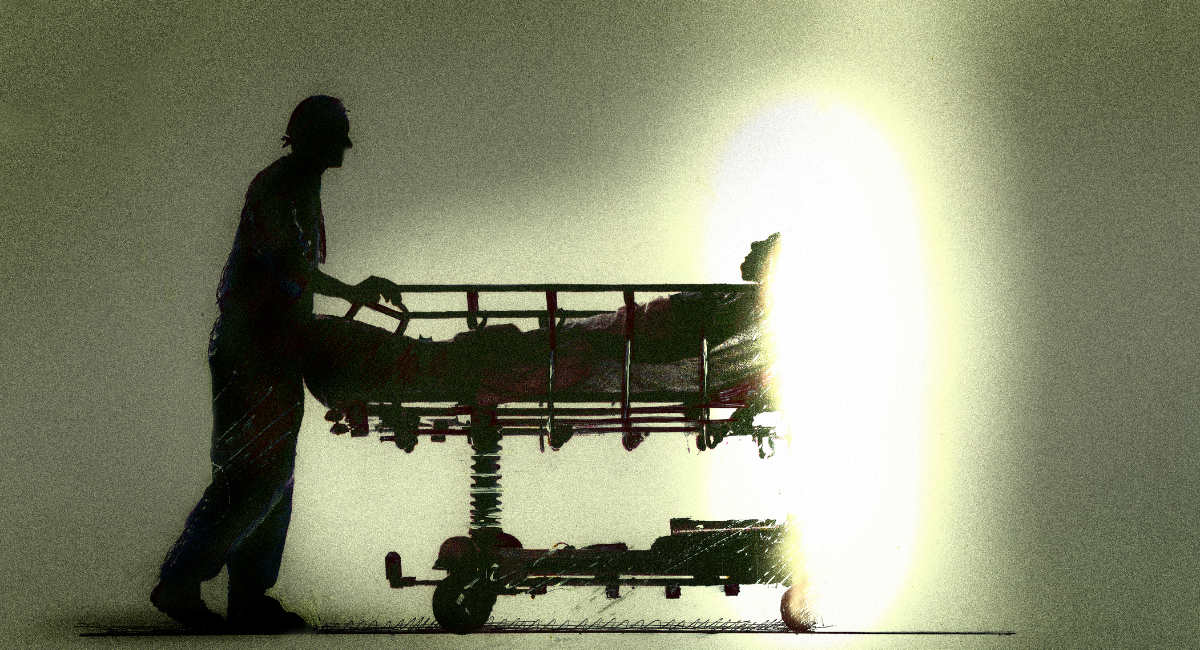As assisted suicide spreads around the world, more and more people with disabilities are falling victim. For many, this is confirmation that a life with a disability is one not worth leading, full of agony, pain, and suffering. Yet for disability advocates, the problem is not the disability itself, but the lack of support and accommodations they face.
Kathleen Nicole O’Neal wrote an op-ed for Not Dead Yet, a non-profit that opposes assisted suicide and euthanasia, arguing that the use of assisted suicide by people with disabilities is a symptom of a discriminatory system that has failed to give the disabled more autonomy.
One of the examples O’Neal cites is Federico Carboni, an Italian man who spent most of his life able-bodied. But 12 years ago, he was in an automobile accident, and woke up from a coma to find himself paralyzed. He lived the next years of his life as a quadriplegic, until he was able to successfully petition the Italian government to allow him to be euthanized. Carboni died earlier this year.
O’Neal pointed out that one of Carboni’s last statements shows how the problem was not one of disability, but of autonomy:
I do not deny that I am sorry to take leave of life. I would be false and a liar if I said the opposite because life is fantastic, and we only have one. But unfortunately, it went like this. I have done everything possible to be able to live as well as possible and try to recover the maximum from my disability, but by now I am both mentally and physically exhausted. I do not have a minimum of autonomy in daily life, I am at the mercy of events, I depend on others for everything, I am like a boat adrift in the ocean. I am aware of my physical condition and future prospects so I am totally calm and calm about what I will do.
O’Neal explained, “What I find haunting about this is that ultimately this is an indictment of a terrible personal care services (aka caregiving) system, a system that fails to pay workers enough to create a reliable workforce and a system that fails to grant disabled people sufficient authority to control their services. Even the most physically disabled people should feel independent and empowered by their attendant services and apparently this is not what was happening in Carboni’s life.”
Unfortunately, as O’Neal explained, the solution to this problem is often not to improve the situation for people with disabilities. It’s to make assisted suicide and euthanasia available for them. “Simply put, assisted suicide is not a solution but an extension of the devaluation disabled people experience,” she wrote. “It’s like saying, ‘Disability equals no autonomy so prepare to die.'”
Along with of poor access to medical care and support services, people with disabilities are routinely ignored, forgotten, and then pushed towards death. And, O’Neal said, they deserve better.
READ: Family shocked to learn healthy American sisters died by assisted suicide in Switzerland
“Federico Carboni did not deserve the death penalty,” she said, adding, “He deserved attendant services that centered his autonomy, his needs, his wants, his wishes, and his will. His life would have been different had he had that opportunity. We as a culture need to get over this notion that needing help with physical bodily functions is an affront to one’s dignity. This is the logic of ableism.”
Catalina Devandas Aguilar, a Costa Rican lawyer and the United Nations’ first Rapporteur on the Rights of Persons with Disabilities, spent a week in Canada investigating whether or not people with disabilities are given the health care and support they need. Yet she discovered numerous cases of individuals who were pressured into euthanasia or placement in nursing homes, as well as a court system that does not reinforce their rights.
Gerard Quinn, Olivier De Schutter, and Claudia Mahler — three experts who sit on the United Nations Office of Human Rights — issued a statement condemning the growing trend of offering euthanasia solely due to disability. “We all accept that it could never be a well-reasoned decision for a person belonging to any other protected group — be it a racial minority, gender or sexual minorities — to end their lives because they experience suffering on account of their status,” they wrote in the statement. “Disability should never be a ground or justification to end someone’s life directly or indirectly.”
Assisted suicide is, in and of itself, inherently ableist. Most people are not undergoing assisted suicide due to fears of a painful death; in fact, a loss of autonomy has been found to be the most commonly cited reason people give for wanting to die. And legalizing assisted suicide essentially tells people with disabilities that they’re right for wanting to die, rather than offering them a reason to live. It seems that saving the life of a suicidal person is only reserved for the young, healthy, and able-bodied. If you’re disabled, you will be helped into suicide, and disability advocates are rightly calling foul.
“Like” Live Action News on Facebook for more pro-life news and commentary!







